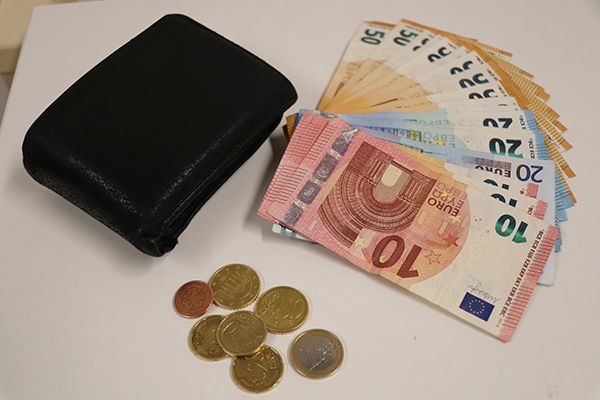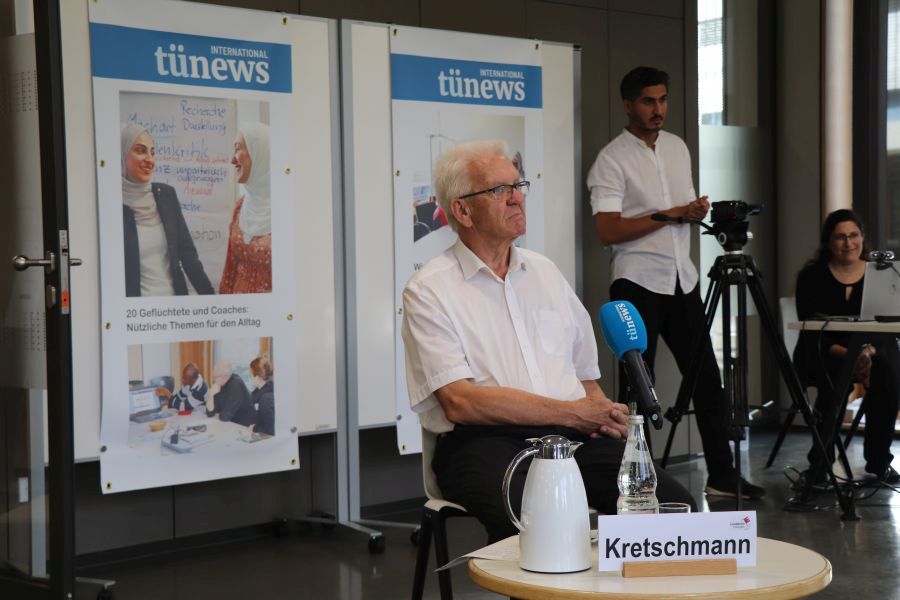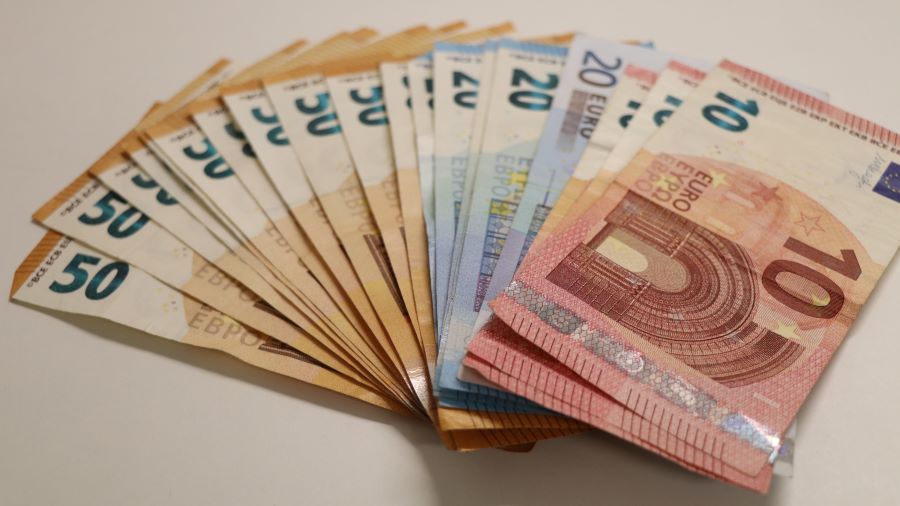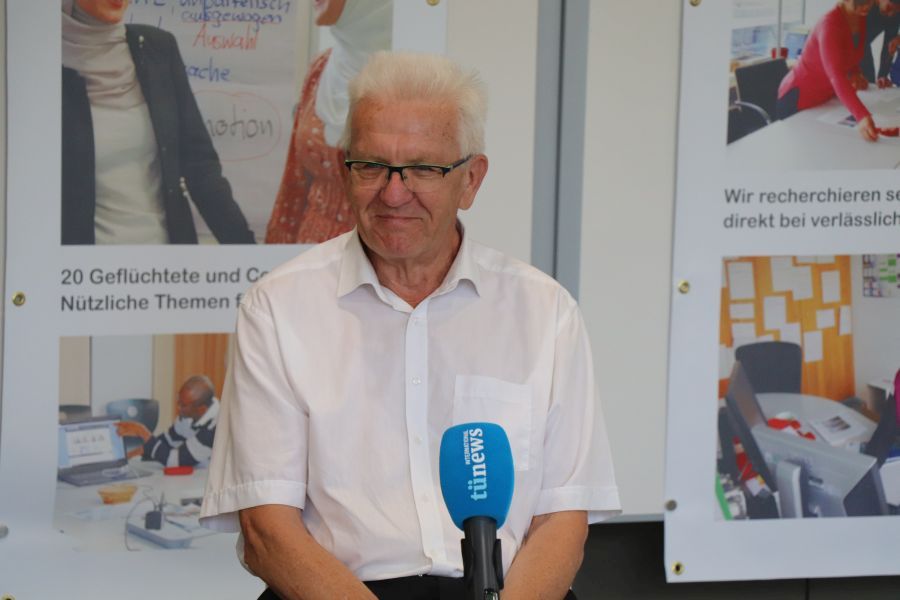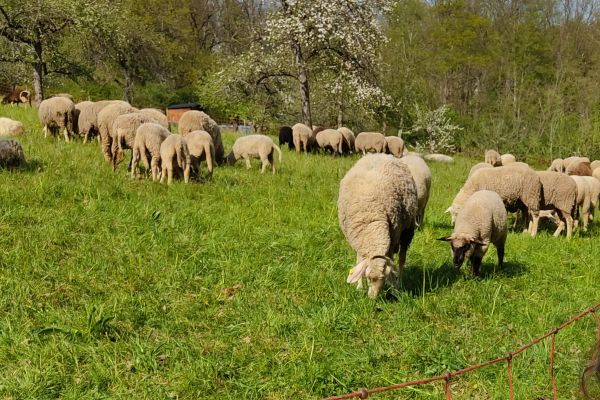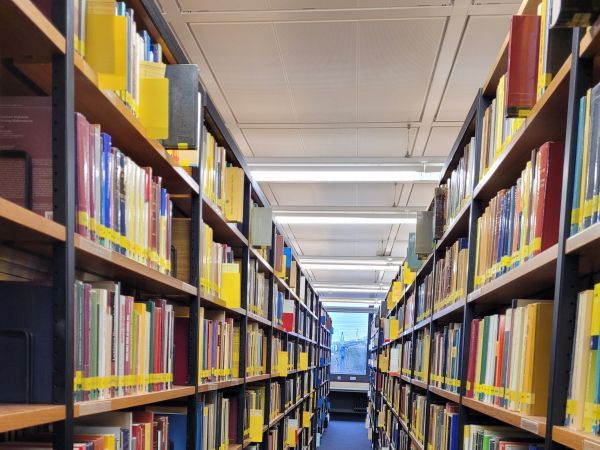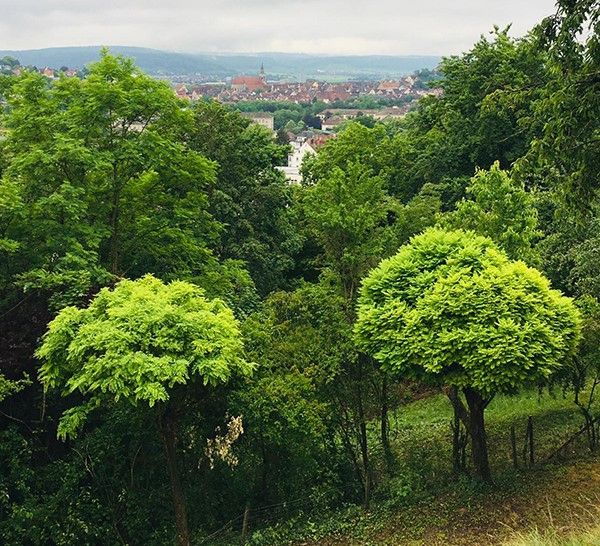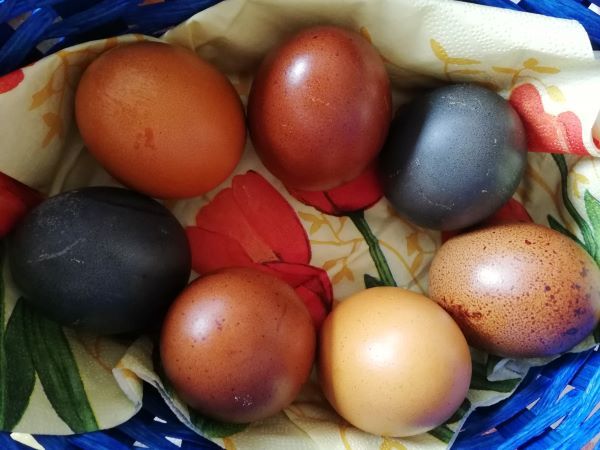By Oula Mahfouz Paying Zakat to the needy is an Islamic religious obligation. The rules of zakat are derived directly from the Quran. Muslims who live in Germany after fleeing from war and following the Quran rules also practice this duty for God and a right for the poor. Zakat is one of the five pillars of Islam. Therefore, failing to comply with Zakat is considered a serious offense and a sin. The word “Zakat” has both the meaning of “purify” and “growth” derived from the explanation of Muslim scholars: “Whoever pays zakat, Allah purifies and increases his wealth.” Muslims… Read More
Category: Diverse
Refugees with Swabian totally there
“Nothing is more surprising than hearing a dialect spoken by a migrant.” This is how Prime Minister Winfried Kretschmann responded when he was asked if he recommended that refugees learn Swabian during his visit to the editorial team of tünews INTERNATIONAL on August 16, 2022, in the Tübingen district office. Kretschmann narrated his own experiences as a child of a family that had fled from the Soviet Armed Forces to West Germany in 1945. According to him, migration is not just a word “that you hear and that only affects others. I’ve already had some vivid experiences with it.” His… Read More
For Muslims, the Prophet’s instruction is: “Do not be wasteful”
By Oula Mahfouz In the face of global economic crisis, inflation, resource scarcity and drought, governments are asking everyone to save resources and energy. This also means changing daily habits that waste energy resources, such as long showers. Recently, Winfried Kretschmann, Minister-President of Baden-Württemberg, caused a stir for his tip to save on showering when he said: “The flannel is also a useful invention.” He was also criticised in part for this. But how did Muslims take it? And how does Islam deal with wastefulness? There are many verses in the Qur’an and hadiths that forbid extravagance and miserliness and… Read More
Geflüchtete mit Schwäbisch total dabei
„Nichts überrascht so, als wenn ein Migrant Dialekt spricht.“ So reagierte Ministerpräsident Winfried Kretschmann bei seinem Besuch der Redaktion von tünews INTERNATIONAL am 16. August 2022 im Landratsamt Tübingen auf die Frage, ob er Geflüchteten empfehle, Schwäbisch zu lernen. Kretschmann hatte von seinem eigenen Erleben als Kind einer Familie, die 1945 vor der sowjetischen Armee nach Westdeutschland geflüchtet war, berichtet. Insofern sei für ihn Migration nicht nur so ein Wort, „von dem man halt hört und von dem nur andere betroffen sind. Ich habe da schon auch einigermaßen lebendige Erfahrungen damit gemacht.“ Sein Vorteil sei gewesen, dass er hier geboren… Read More
Syrian recipes against heat
“Bolo” with lots of mint In summer, a drink called “Bolo” is often sold in Syria against the heat. It consists mainly of fresh lemon juice and lots of mint. Then add water, ice cubes and sugar as you like and mix everything in a blender. The green drink tastes very good and gives fresh energy in the heat. Help for stressed skin When we spend too long in the sun, we easily get sunburnt. For the skin stressed by heat, there is a traditional recipe in Syria. It involves mixing yogurt with cornstarch to make a creamy mixture. Then… Read More
Festival of Sacrifice under German conditions
The Festival of the Sacrifice or “Eid al-Adha” is one of the most important festivals for Muslims. The festival has its origins in the story of Prophet Ibrahim, who almost sacrificed his son out of obedience to his God. Instead, God sent him a sheep. That is why the sacrifice of an animal, such as a sheep, camel, or cow is the focus. The meat is prepared and then shared: depending on the degree of kinship, the man gives one-third to the poor people, another to relatives and friends. Also, man can keep very little for one’s own family. In… Read More
The first semester—a German-Syrian reports
By Michael Seifert Editorial member Reem Al Sagheer has been studying mathematics and Islamic theology at the University of Tübingen since October 2021. She fled Damascus with her family and has been living in Germany for over seven years. Last year, she graduated from high school in Tübingen and is now a German citizen. For tünews INTERNATIONAL, she talks about her experiences in the first semester. “My first and most important impression was that the level at university is completely different from that at school. I hadn’t imagined it to be so difficult. That’s not because of my German skills,… Read More
The beaver is back in the district of Tübingen
For centuries, the beaver was intensively hunted in Germany and almost went extinct in the 20th century. Now it is reclaiming its habitat in Germany, including in the district of Tübingen. Through his way of life, the beaver changes the landscape and creates habitat for other species. In times of species decline, the ecological change of flowing and still waters by the beaver is an enrichment for biodiversity. Problems with beavers arise in agriculture and forestry: for example, beavers build dams and eat trees. Thus, the animal changes the structure of rivers and lakes. This can cause waterlogging of adjacent… Read More
Beware of caterpillars on oak trees
The oak processionary moth is a type of a butterfly. Its offspring is a caterpillar, that emerges starting end of May. Its “stinging” hair can cause skin inflammations with strong itching, inflammations of the eye or the upper respiratory tract and more. Especially risky is the direct contact with the caterpillar and its webs, within which they reside. The wind can spread around the caterpillar’s hair from the trees. The caterpillars have spread so widely during the last view years. Therefore, they can be found in almost all tree populations. Within the forest, the oak processionary moth is not being… Read More
Colorful Easter eggs
Why are Easter eggs colorful? Children would be told: so that they can more easily find the eggs that the Easter Bunny hides for them in the green grass. But that’s just one story surrounding the brightly painted chicken eggs. Easter eggs, which are colorfully dyed in the week before the Christian Easter, have a long tradition in Christianity. Eggs have been considered a symbol of fertility there for many centuries. But how it came to egg coloring and thus to today’s “Easter eggs” is not clearly documented. There are several explanations. One of them, according to Wikipedia, says that… Read More

